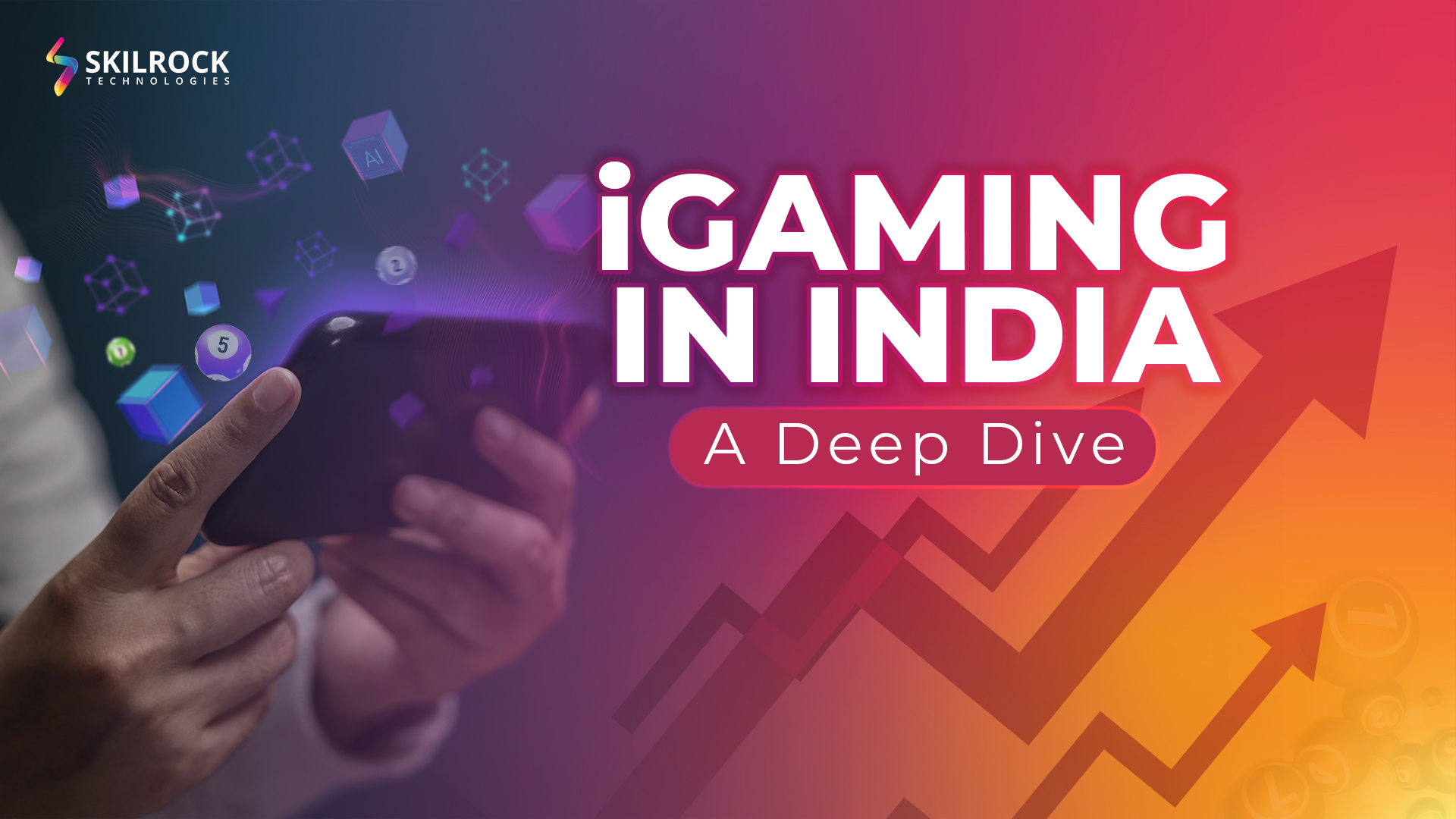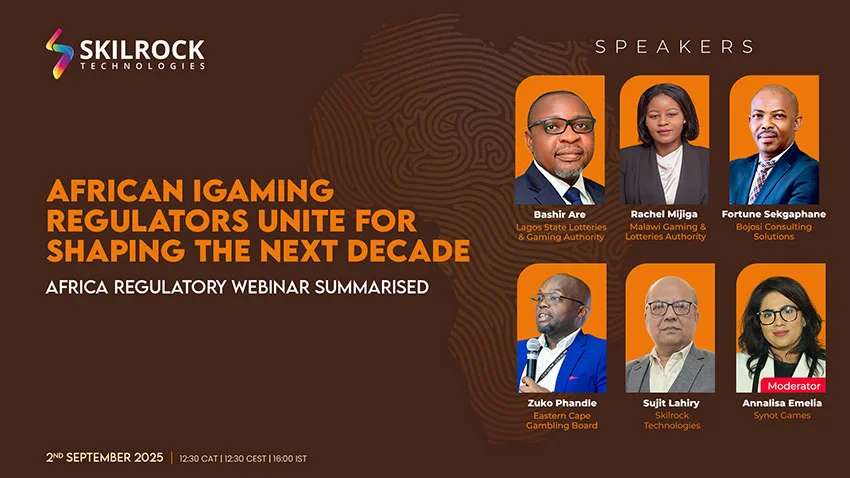iGaming in India: A Deep Dive
In the age of digitalization, the gaming industry has grown into a global powerhouse of innovation and engagement. Among its many aspects, iGaming, encompassing online lotteries, casino games, poker, sports betting, and more, has emerged as a dynamic and rapidly growing sector. India, with its vast and digitally advanced population, is now at the threshold of an iGaming revolution.
India’s demographic advantage plays a crucial role in this transformation. With a median age of 28.8 years in 2025, the country boasts one of the youngest populations globally. Around 65% of the Indian population is under the age of 35, forming a tech-savvy, digital-first generation that is reshaping entertainment preferences. This youthful demographic, coupled with increasing disposable income and smartphone penetration, has fueled the rapid adoption of iGaming.
In the past decade, India has seen an unprecedented surge in internet penetration, driven by the proliferation of affordable smartphones and low-cost data plans, which has made digital access more inclusive. With more than 900 million internet users (as of 2024), India is one of the largest online populations in the world. This has created a fertile ground for iGaming platforms to flourish.
As digital entertainment becomes a mainstay for India's youth, online gaming has risen as a preferred pastime. Players are drawn to the convenience, variety, localization, and interactive nature of iGaming platforms. The ability to engage in gaming from the comfort of home, coupled with social features and real-time updates, has transformed how people perceive gaming.
According to market research, despite regulatory challenges, the sector generated $3.8 billion in revenue in FY24, marking a 23% year-on-year growth. Further, India's iGaming sector is poised to grow at a compound annual growth rate (CAGR) of over 20% in the next five years, crossing $9 billion. The sector currently has millions of active users, with 590 million gamers reported in FY24. This growth is attracting significant attention from global investors.
Popular iGaming Formats in India
Globally, non-skill-based games, often driven by chance or luck, are popular among players given their exciting nature and thrill of unpredictability. Although in India, the gaming industry has a unique dynamic. While games of skill are considered legal, games of chance fall under state jurisdiction, resulting in varied laws across regions. This distinction often leads to ambiguity for both operators and players.
Characterized by a diverse range of formats that cater to varied interests and preferences, the following are some of the most popular categories:
Fantasy Sports: Platforms like Dream11 allow players to create virtual teams based on real-life sports events, requiring strategic thinking and knowledge of the sport.
Rummy: A classic card game that demands mathematical and analytical skills to form sequences and sets.
Chess: Known for its emphasis on strategy and foresight, chess has been a favorite for generations.
Online Poker: Gaining traction for its blend of psychology, probability, and strategy.
Regulatory Landscape
India’s gaming legality varies from state to state, as gaming is regulated at the state level. The Public Gambling Act of 1867, a national law, though outdated, still serves as the foundation for many gambling regulations and prohibits public gambling houses:
This national law prohibits public gambling and the operation of common gaming houses.
It does not explicitly address online gambling, leaving the regulation of online platforms to individual states.
The act distinguishes between games of skill and games of chance, with the former often exempt from its provisions.
A few key states where iGaming is permitted or regulated are Goa, Sikkim, Nagaland, Daman, and Diu. They have established their own regulatory frameworks that permit certain forms of gambling and online gaming. However, the absence of a unified central law poses challenges for nationwide operations.
Goa
The Goa, Daman and Diu Public Gambling Act, 1976, governs gambling activities here. Both land-based and online casinos are permitted under specific licenses.
Offshore casinos operate on ships on a standalone basis, while land-based casinos are restricted to five-star hotels only.
Sikkim
The Himalayan state has a progressive approach to gambling, with the Sikkim Online Gaming (Regulation) Act, 2008, allowing online gaming and sports betting.
Licenses are issued for games of chance and skill, including poker, blackjack, and roulette. However, online gaming is restricted to intranet terminals within the state.
Nagaland
Nagaland focuses on games of skill through the Nagaland Prohibition of Gambling and Promotion and Regulation of Online Games of Skill Act, 2015.
Games like poker, rummy, and fantasy sports are considered skill-based and can be offered online with proper licensing.
Daman and Diu
Governed by the same Goa, Daman and Diu Public Gambling Act, 1976, as in Goa, gambling is legal here.
However, no licenses have been issued for casinos or online gaming platforms in Daman and Diu so far, despite having a legal framework that allows for casino operations.
In recent years, some states have implemented bans or restrictions on online gaming, while others are exploring regulatory frameworks to generate revenue. As the sector matures, there is growing anticipation for clearer regulations. A robust and transparent framework could unlock significant economic potential while ensuring consumer protection.
Challenges in India's iGaming Industry
Despite its promise, the iGaming sector in India faces several hurdles:
Regulatory Uncertainty: The lack of uniform laws creates a grey area that affects businesses and players. Addressing these ambiguities is essential for long-term growth.
Responsible Gaming: With rapid growth comes the responsibility to address concerns related to addiction and unethical practices. Awareness campaigns and regulatory oversight are key to ensuring a healthy gaming ecosystem.
Challenges with GST: Recent changes to the GST framework, raising the rate to 28% of the full-face value of bets, have created hurdles for the emerging industry. This shift contrasts with India's traditional indirect tax policies and global norms, where rates usually range from 15% to 20%.
Payment Processing and Cybersecurity: Secure payment gateways and robust cybersecurity measures are critical to maintaining user trust and preventing fraud.
Opportunities in the iGaming Ecosystem
The Indian iGaming industry presents exciting opportunities for players, investors, and operators:
For Players
Diverse Gaming Options: Players can enjoy a wide range of games, including fantasy sports, poker, rummy, and live casino experiences.
Skill-Based Gaming Growth: Games like Teen Patti and Andar Bahar are gaining popularity, offering interactive and strategic gameplay.
Localized Payment Methods: The rise of UPI-based transactions makes deposits and withdrawals seamless for Indian players.
For Investors
Expanding Market: India's iGaming sector is projected to grow significantly, with fantasy sports alone expected to generate ₹388 billion by 2026.
Tech-Driven Innovation: The integration of VR, AR, and Web3 gaming is creating new revenue streams.
Regulatory Developments: While challenges exist, evolving regulations could provide a structured framework for investment.
For Operators
Mobile-First Audience: With significant online traffic coming from mobile devices, optimizing platforms for mobile users is crucial.
Cricket Betting Boom: The IPL attracts more betting activity than matches involving the national team, making it a prime focus.
Live Casino and Slots: Live casino games and slots are leading revenue drivers, with instant games like Aviator also gaining traction.
Technological Advancements Driving iGaming
Diverse Gaming Options: Players can enjoy a wide range of games, including fantasy sports, poker, rummy, and live casino experiences.
Skill-Based Gaming Growth: Games like Teen Patti and Andar Bahar are gaining popularity, offering interactive and strategic gameplay.
Localized Payment Methods: The rise of UPI-based transactions makes deposits and withdrawals seamless for Indian players.
Expanding Market: India's iGaming sector is projected to grow significantly, with fantasy sports alone expected to generate ₹388 billion by 2026.
Tech-Driven Innovation: The integration of VR, AR, and Web3 gaming is creating new revenue streams.
Regulatory Developments: While challenges exist, evolving regulations could provide a structured framework for investment.
For Operators
Mobile-First Audience: With significant online traffic coming from mobile devices, optimizing platforms for mobile users is crucial.
Cricket Betting Boom: The IPL attracts more betting activity than matches involving the national team, making it a prime focus.
Live Casino and Slots: Live casino games and slots are leading revenue drivers, with instant games like Aviator also gaining traction.
Technological Advancements Driving iGaming
Mobile-First Audience: With significant online traffic coming from mobile devices, optimizing platforms for mobile users is crucial.
Cricket Betting Boom: The IPL attracts more betting activity than matches involving the national team, making it a prime focus.
Live Casino and Slots: Live casino games and slots are leading revenue drivers, with instant games like Aviator also gaining traction.
Technology remains the backbone of iGaming, driving innovation and enhancing user experiences:
Artificial Intelligence (AI): AI-powered algorithms offer personalized recommendations and detect fraudulent activities, making gaming safer and more engaging.
Blockchain Technology: Blockchain ensures transparency and fair play by recording transactions on immutable ledgers.
Immersive Technologies: Augmented Reality (AR) and Virtual Reality (VR) are poised to revolutionize the gaming experience, bringing lifelike interactions to virtual platforms.
Future of iGaming in India
India's iGaming industry is on an exciting trajectory. Emerging trends and innovations indicate a bright future:
Increased focus on esports, localized content
Esports Growth: The esports industry is expected to generate over ₹2,000 crore (USD 240 million) in revenue by this year, with investments focusing on competitive gaming platforms and tournaments.
Localized Content and IP Creation: Startups that create localized gaming content and IP customized for India’s diverse demographics are gaining traction from the investors.
Innovation in Gaming Tech: Companies innovating in areas such as AI-driven non-player characters (NPCs), gaming experiences enhanced by 5G technology, and immersive solutions using AR/VR are becoming key interests for venture capital firms with a tech-centric focus.
Government Support and Initiatives
The Indian government has identified the gaming sector as a key area for growth and is actively fostering it through various initiatives:
AVGC Task Force: In 2022, the government launched a specialized task force for Animation, Visual Effects, Gaming, and Comics (AVGC). This initiative aims to drive progress through training programs, support startups, and collaboration between educational institutions and the gaming industry.
PLI Schemes for Gaming Hardware: To promote gaming hardware manufacturing in India, the government has introduced schemes like Production-linked incentive, which further strengthens the ecosystem.
With the right blend of innovation, regulation, and consumer focus, India has the potential to become a global leader in iGaming. As the industry continues to evolve, it holds immense potential for players, operators, and investors alike. By addressing regulatory complexities and embracing technological advancements, India can unlock a future where iGaming thrives as a mainstream source of entertainment.


 English
English

 Spanish
Spanish
 Portuguese
Portuguese














